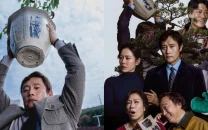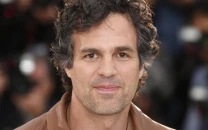Blake Lively's It Ends With Us press tour backlash: How her words failed domestic violence survivors
It’s crucial to approach discussions about domestic violence with the seriousness and sensitivity they deserve.

There’s a clear reason why some people took issue with Blake Lively’s approach during the press tour for It Ends With Us, especially her message to domestic abuse and trauma survivors. This issue highlights a crucial aspect of domestic violence that’s often overlooked..
In It Ends With Us, Lively portrays Lily Bloom, whose once-enchanted romance with Ryle (Justin Baldoni) turns abusive when he becomes violent. At the film’s premiere, Lively was asked what message she would offer to real-life survivors who might see their own experiences reflected in the movie. She responded, “I think that you’re so much—and not to minimize it—but you are so much more than just a survivor or just a victim.”
“While that is a huge thing, you are a person of multitudes, and what someone has done to you doesn’t define you. You define you.” She further commented that It Ends With Us “is a story that covers domestic violence but it’s not about domestic violence.”
This response, like many discussions about domestic violence, misses an important aspect: the profound sense of shame victims often feel. While Lively deserves recognition for her nuanced portrayal of abuse in the film, her response lacked the same sensitivity. Although unintentional, the language she used can reinforce negative connotations associated with being a victim.
By saying someone is “more than just a survivor” or “more than just a victim,” it can imply that identifying as a victim is inherently negative or something to be overcome. This perspective can perpetuate the stigma surrounding victimhood, which is often linked with weakness. Even if not intended, such language can unintentionally reinforce these harmful stereotypes.
For many survivors, acknowledging their victimhood is a crucial step in overcoming the shame associated with abuse. Accepting this label can help them distinguish the real perpetrator of their trauma and regain a sense of control and agency.
Lively’s statement that the film “covers” but is not “about” domestic violence mirrors how Lily Bloom might minimize the abuse in her relationship. This distancing language can make survivors feel like their experiences are not fully acknowledged.
Survivors typically seek validation and recognition of their pain before worrying about being seen as victims. When the conversation begins with a focus on being “more than just victims,” it can feel as though the core of their experience is being overlooked.
It’s crucial to approach discussions about domestic violence with the seriousness and sensitivity they deserve. Ideally, Lively’s message should affirm that she sees and acknowledges the experiences of victims.



















COMMENTS
Comments are moderated and generally will be posted if they are on-topic and not abusive.
For more information, please see our Comments FAQ